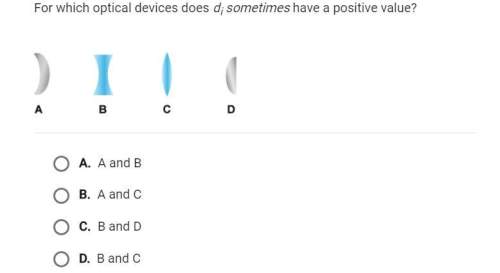
Physics, 10.07.2019 12:30 milhai0627a
Two objects of the same mass are on two different planets. planet a has a force of gravity that is stronger than that of planet b. how will the weights of the objects compare to each other?

Answers: 1


Another question on Physics

Physics, 22.06.2019 03:30
As part of an industrial process, air as an ideal gas at 10 bar, 400k expands at steady state through a valve to a pressure of 4 bar. the mass flow rate of air is 0.5 kg/s. the air then passes through a heat exchanger where it is cooled to a temperature of 295k with negligible change in pressure. the valve can be modeled as a throttling process, and kinetic and potential energy effects can be neglected. (a) for a control volume enclosing the valve and heat exchanger and enough of the local surroundings that the heat transfer occurs at the ambient temperature of 295 k, determine the rate of entropy production, in kw/k. (b) if the expansion valve were replaced by an adiabatic turbine operating isentropically, what would be the entropy production? compare the results of parts (a) and (b) and discuss.
Answers: 3

Physics, 22.06.2019 12:00
If the new moon happens on january 15th, what shape will it be on february 6th?
Answers: 1

Physics, 22.06.2019 15:00
Greg drew a diagram to compare two of the fundamental forces. which labels belong in the areas marked x, y and z? gravitational force electromagnetic force x. attractive y repulsive z: infinite range x: infinite range y attractive z. repulsive x. always attractive y: infinite range z: attractive or repulsive x. attractive or repulsive y infinite range z: always attractive
Answers: 2

Physics, 22.06.2019 16:40
Aparticle's position is given by x = 3.00 - 9.00t + 3t2, in which x is in meters and t is in seconds. (a) what is its velocity at t = 1 s? (b) is it moving in the positive or negative direction of x just then? (c) what is its speed just then? (d) is the speed increasing or decreasing just then? (try answering the next two questions without further calculation.) (e) is there ever an instant when the velocity is zero? if so, give the time t; if not, answer "0". (f) is there a time after t = 3 s when the particle is moving in the negative direction of x? if so, give the time t; if not, answer "0".
Answers: 3
You know the right answer?
Two objects of the same mass are on two different planets. planet a has a force of gravity that is s...
Questions


History, 30.04.2022 16:30


History, 30.04.2022 17:20





Mathematics, 30.04.2022 18:00




English, 30.04.2022 18:30

History, 30.04.2022 18:50

Engineering, 30.04.2022 19:10

History, 30.04.2022 19:10




SAT, 30.04.2022 19:40




